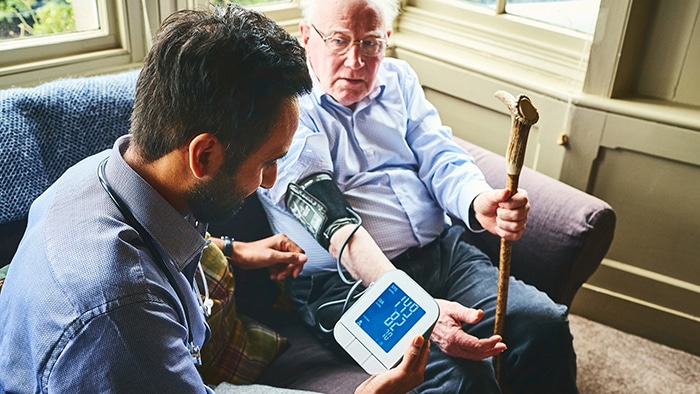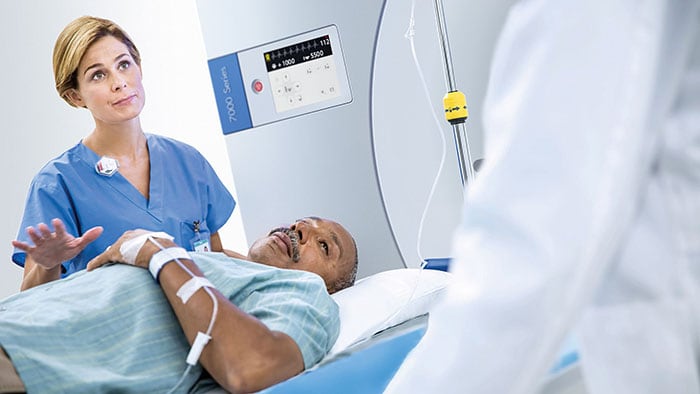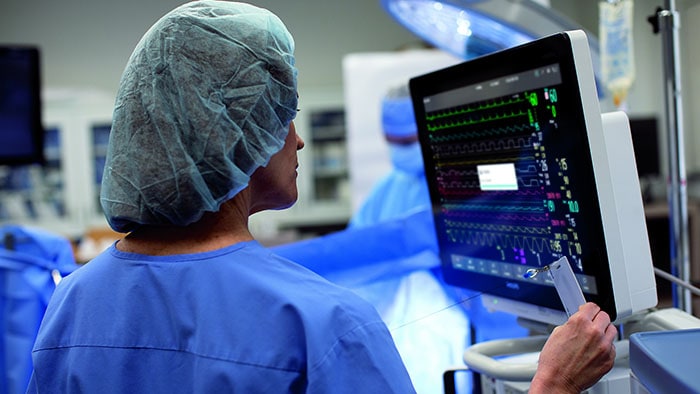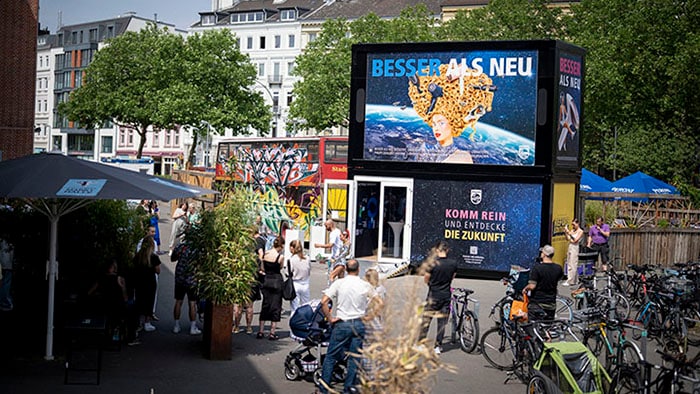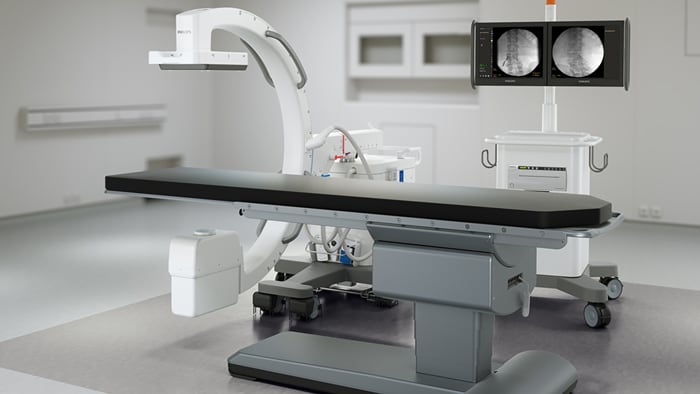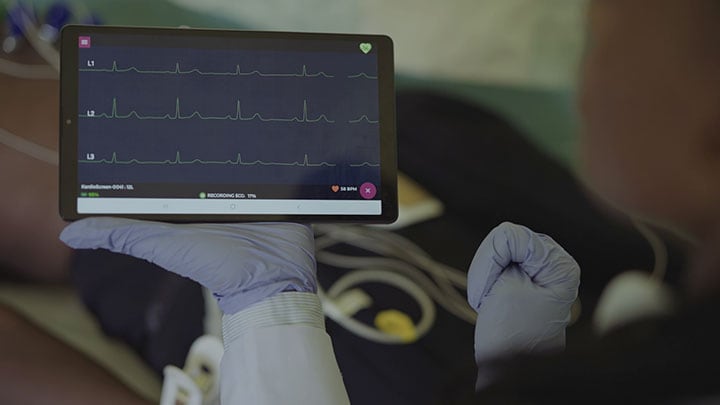Sep 28, 2018
A GUINNESS WORLD RECORDS achievement: Philips creates the world’s largest digital heart to bring awareness to heart health in Egypt
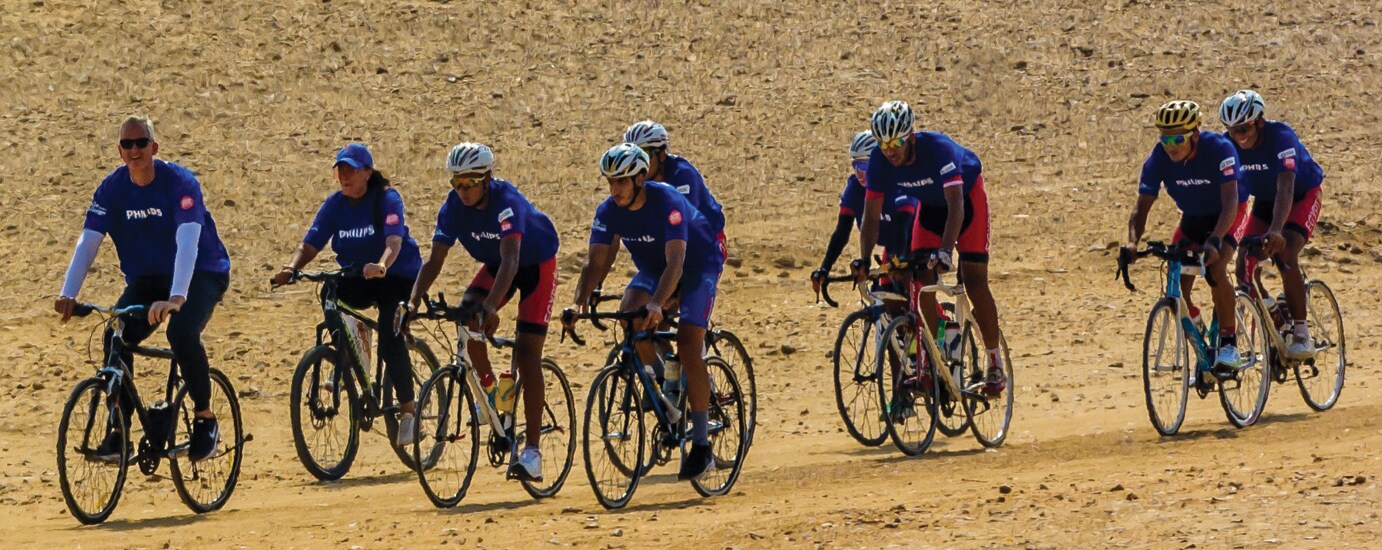
Cairo, Egypt – Philips Egypt has set a Guinness World Record for creating the world’s largest GPS drawing by bicycle (team) in the shape of a digital heart. The record attempt was undertaken and achieved to commemorate Heart Awareness Month, and World Heart Day (29th September 2018), and formed the finale for the month-long Back to Rhythm campaign that was hosted by the Philips Foundation in collaboration with Philips Egypt and the Egyptian Red Crescent.
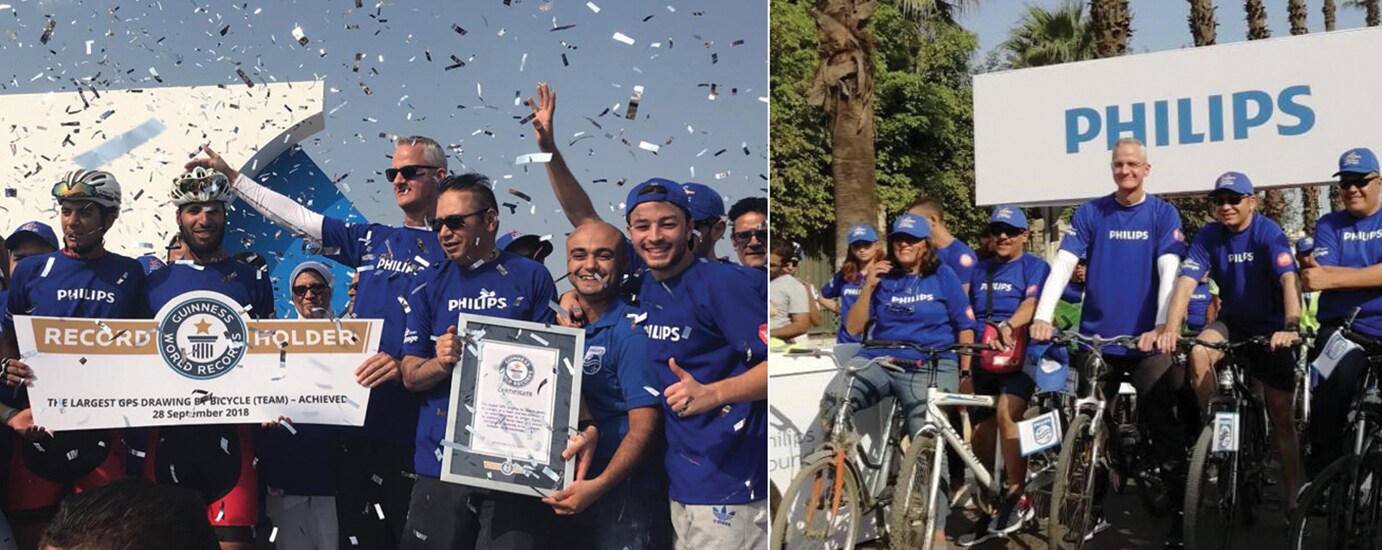
A team of cyclists took on Philips’ “Back to Rhythm” challenge to cycle 740km across Egypt, digitally tracking their route, to create the world’s largest GPS drawing in the shape of a heart. The team started at the Great Pyramids of Giza on Wednesday, 26 September 2018 and completed the challenge on Friday, 28 September 2018.
It was a rigorous challenge, covering different terrains, and tough conditions across all of Egypt, but it was such a humbling ride. It is an honour to be able to use my passion to drive such an important message of staying fit and keeping healthy."
Galal Zekri-Chatila
the professional cycling team lead
Leading up to the record attempt, the Back to Rhythm campaign took the form of multiple stakeholder engagements to raise awareness on good heart health including educational programmes centered on encouraging healthy eating, adopting a healthy lifestyle and training on CPR (Cardio Pulmonary Resuscitation) and BLS (Basic Life Support). Stationary bikes were placed at different strategic locations across Cairo and residents of the city were encouraged to cycle for 10-minutes to raise the required kilometres for the Philips Foundation to provide automated external defibrillators (AEDs) to the Egyptian Red Crescent to place in strategic public spaces across Cairo. The Philips HeartStart AEDs donated to the Egyptian Red Crescent have a simple design, are portable and guide the user through the resuscitation process using a clear, calm voice and audible instructions that acts as a personal coach. Therefore, the user of a Philips HeartStart defibrillator does not need to recognise or interpret heart rhythms, because the AED does so automatically, making the treatment option safe and easy to use, with minimal training. Essentially arming the general public with lifesaving capabilities. As part of the Nile Heart Challenge, people cycled 10 kms from the University of Cairo to the Great Pyramids of Giza to contribute to the overall distance, and witness the Guinness World Record attempt on Friday, 28 September 2018. Philips Africa CEO, Jasper Westerink was among the cyclists who took on the challenge. “I can only look back to this achievement with complete pride. It is inspiring to experience what can be achieved when people come together for a meaningful purpose.” says Jasper Westerink. “Each element of the Back to Rhythm campaign assisted in taking a step closer to addressing the rising incidence of cardiac diseases in Egypt - from the Cardiac Conversations with key healthcare stakeholders on the changes required to improve cardiac health of citizens; to the on ground training CPR & BLS training of the residents of Cairo.To successfully drive down future incidences of heart disease, we hope to see these conversations and training sessions bring about sustainable lifestyle changes in local communities; empowering Egyptians to live longer, healthier, and more productive lives.”
The Future of Heart Health
The reality is that the average Egyptian is at
risk of contracting coronary heart disease. The Philips Back to Rhythm campaign is intended to educate the public on cardiac health especially Sudden Cardiac Arrest; how to recognize the symptoms, and how to try and save the lives of others in the unfortunate event of a Sudden Cardiac Arrest."
Iyad AlTaiyeb
CEO for Philips North East Africa
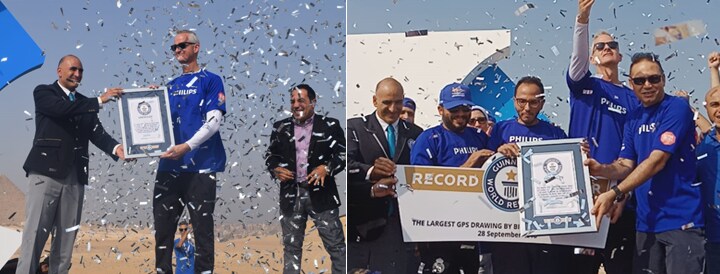
Raising awareness on the growing incidence of CVD; especially SCA and reinforcing the need for a healthy lifestyle and healthy diet are core components of the Back to Rhythm campaign, which will continue with several different informative and educative programmes in the coming months. Follow the campaign on Facebook and Twitter : #BacktoRhythm #HeartHealthyWithPhilips To read more about the Guinness World Record achievement: http://worldslargestheart.com
About Royal Philips
Royal Philips (NYSE: PHG, AEX: PHIA) is a leading health technology company focused on improving people's health and enabling better outcomes across the health continuum from healthy living and prevention, to diagnosis, treatment and home care. Philips leverages advanced technology and deep clinical and consumer insights to deliver integrated solutions. Headquartered in the Netherlands, the company is a leader in diagnostic imaging, image-guided therapy, patient monitoring and health informatics, as well as in consumer health and home care. Philips' health technology portfolio generated 2017 sales of EUR 17.8 billion and employs approximately 74,000 employees with sales and services in more than 100 countries. News about Philips can be found at www.philips.com/newscenter
Topics
Contacts

Radhika Choksey Head of Brand, Communications and Digital Philips Africa Tel: +31 62525 9000
Email: radhika.choksey@philips.com
